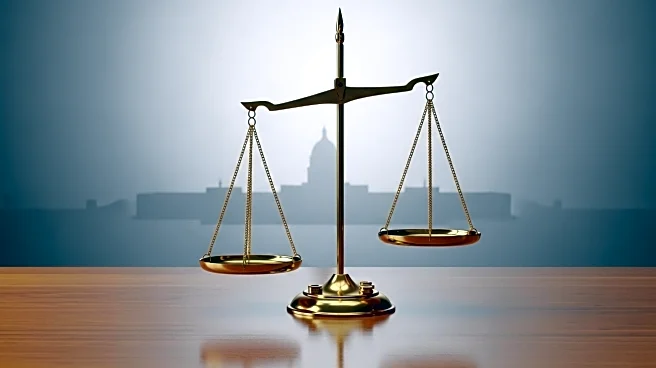What's Happening?
The federal government has shut down following a failure by the Senate to agree on a stopgap spending bill. The impasse arose as Republicans and Democrats blocked each other's proposals. The Republican bill did not include provisions to restore Medicaid funding or extend Obamacare subsidies, leading to Democratic opposition. Conversely, the Democratic proposal included over $1 trillion in spending, which Republicans rejected. President Trump has indicated that the shutdown could be used to implement measures unfavorable to Democrats, such as cutting programs they support. As a result of the shutdown, hundreds of thousands of federal workers are expected to be furloughed, although essential services like air traffic control and law enforcement will continue to operate.
Why It's Important?
The shutdown has significant implications for federal workers and government operations. Many employees will be furloughed, and those who continue working may face delayed paychecks. Essential services, including air traffic control and law enforcement, will remain operational, but travelers may experience longer wait times at airports. Social Security, Medicare, and Medicaid benefits are expected to continue without interruption, at least temporarily. The shutdown highlights the deep partisan divide in Congress, with both parties unable to compromise on key spending issues. The situation could lead to broader economic impacts if prolonged, affecting government programs and potentially leading to mass layoffs as suggested by President Trump.
What's Next?
If the shutdown persists, federal agencies may face operational challenges as funding runs out, potentially leading to the suspension of certain programs. Workers who are not receiving paychecks may choose not to report to work, further complicating government functions. President Trump has suggested that the shutdown could be used to permanently reshape government operations, possibly through mass layoffs. The Senate will need to reconvene and negotiate a resolution to restore government funding and end the shutdown.
Beyond the Headlines
The shutdown raises ethical and political questions about the use of government funding as a bargaining tool. President Trump's comments about using the shutdown to enact measures detrimental to Democrats suggest a strategic use of government operations to achieve political goals. This approach could lead to long-term changes in how government shutdowns are perceived and managed, potentially altering the balance of power between political parties in future negotiations.









